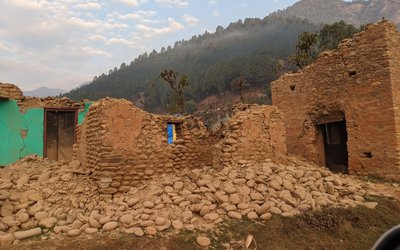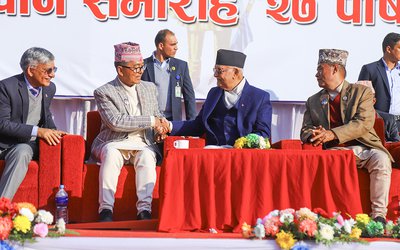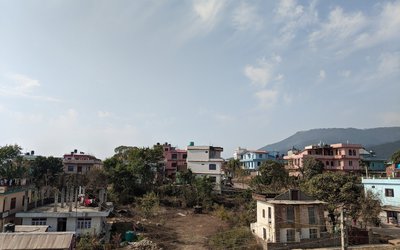
Green Climate Fund approves major grant to build resilience, mitigate effects of climate change on vulnerable rural families in Nepal
The Board of the Green Climate Fund (GCF) has approved more than USD 39 million in funding for a project that will build resilience and mitigate the effects of climate change to the benefit of nearly one million people in Nepal, the GCF board announced today.
The Food and Agriculture Organization of the United Nations (FAO) has worked with the Government of Nepal to develop this project, which is the first to be brought by Nepal before the GCF Board.
Nepal’s Ministry of Forests and Environment (MoFE) is co-funding the initiative – adding a further USD 8 million – for a total of more than USD 47 million. FAO and MoFE will implement the work over a period of seven years.
Work will focus on communities in the Churia hills region, the southernmost range of the Himalayan foothills, running east-west through Nepal. “This region is a national priority critical to Nepal’s food security and climate change policy. As Nepal’s first GCF grant project, we are committed to ensuring that it brings transformational change to grassroots communities, and enhancing climate resilience,” said Kailash Pokharel of Nepal’s Ministry of Finance.
The Churia provides vital ecosystem functions to heavily populated plains downstream where the most fertile agricultural lands are found. Decades of unsustainable use of natural resources have resulted in forest degradation, floods and soil erosion. The negative effects on downstream communities have been exacerbated by increased droughts and extreme weather events caused by climate change. It’s predicted those impacts will intensify in coming years, further threatening food security and livelihoods.
“This major GCF contribution to FAO’s work in partnership with the Government of Nepal—at all levels of federalization, namely: central, provincial and municipal—will benefit more than 200,000 households (rural families) in the Churia hills as it will help them become more resilient to the changing environment in which they find themselves now. It will also help them adapt to, and mitigate the effects of, climate and extreme weather events in the years to come,” said Somsak Pipoppinyo, FAO Representative to Nepal.
Much of the project’s work will focus on developing infrastructure to move away from unsound and environmentally damaging natural resource management practices. It is designed to directly contribute to help achieve Nepal’s nationally determined contribution (NDC).
“The project will work with both government and communities to coordinate actions,” said Ben Vickers, FAO’s lead technical officer. “We anticipate these actions will deliver average annual emission reductions of nearly half-a-million tonnes of CO2 each year.”
The project’s long-term sustainability will rely on its focus on individual and institutional capacity building with key stakeholders at all levels.
- Nepali men, women squads enter Kho Kho World Cup finals
- Jan 19, 2025
- Nepal Visit Year 2025 And Chinese New Year Announced
- Jan 19, 2025
- Weather Forecast: Partly Cloudy In Sudur Paschim and Karnali Provinces and Fair In The Rest
- Jan 19, 2025
- Kathmandu-Tarai/Madhes Expressway Project: 37.56 Percent Completed, President Paudel Paid A Site Visit
- Jan 18, 2025
- Nepal Welcomes The Recent Agreement For The Release of Hostage And Ceasefire In Gaza
- Jan 17, 2025















